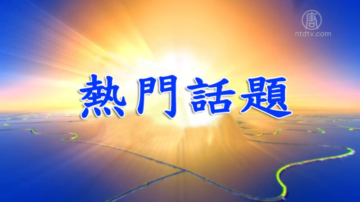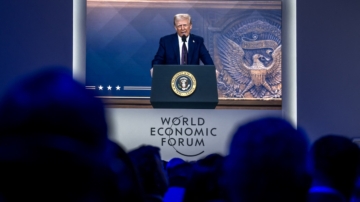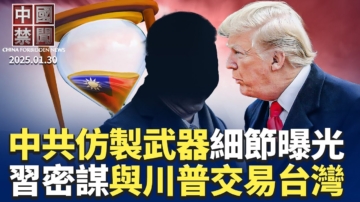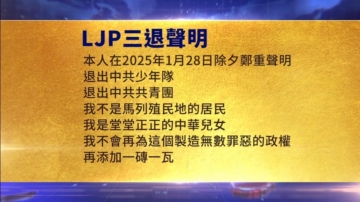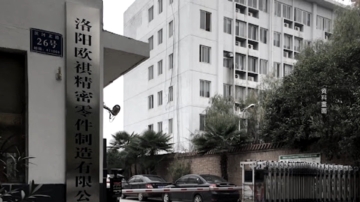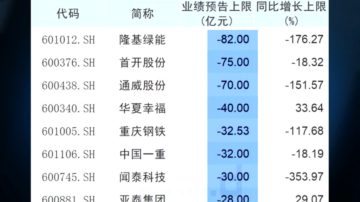【新唐人2014年05月28日訊】中共當局除了禁止政府機關使用電腦操作系統「微軟視窗8」後,日前又下令,禁止國營企業使用美國諮詢公司的服務。外界認為,因為美國起訴了5名中共網路部隊軍官,中共為報復發泄,同時給國人一種強大的感覺。可是一旦國營企業離開美國這些諮詢公司,可能無法在國際市場生存。
英國《金融時報》5月26號報導說,接近中共高層的人士透露,中共已經禁止國有企業與麥肯錫(McKinsey),和波士頓諮詢集團(Boston Consulting Group)等美國諮詢公司有業務往來。
受禁令影響的還包括貝恩公司(Bain & Company)、和原稱博斯公司(Booz & Co)的「Strategy&」管理諮詢公司。
一週前,美國起訴了5名利用網路竊取商業機密的中共軍官。《金融時報》認為,這個禁止使用美國諮詢公司服務的禁令,是中共報復行動的升級。
美國紐約城市大學政治學教授夏明:「這種做法客觀上會導致中國對全球經濟的參與度降低,因為中國有上千家公司在美國、全球的股市上,它必須要交付各種材料,單獨由中國方面來出具的話,根本就沒有任何公信力,必須要通過美國的諮詢公司,如果真這樣做的話,基本上就是要讓中國的企業從全球的資本市場退出。」
美國南卡羅來納大學艾肯商學院教授謝田:「真正受害的是這些中國公司,因為這些諮詢公司都是非常老字號的公司,他們都有非常聰明的頭腦,也了解世界各國的市場、產品研發、設計創新、金融操作,世界各國公司會花高價去僱傭這些公司,是因為對他們擴展各國市場有益,現在把它們切斷的話,會減低中國企業的競爭力。」
據報導,與中國實體相關的商業黑客活動規模非常龐大,攻擊目標對準防務組織、石油巨頭、軟飲料公司等多種行業。據估計,這一類攻擊每年讓美國經濟損失1200億美元。
《金融時報》評論說,這次美國政府的指控,說明華盛頓不會繼續容忍中國大規模、多方位獲取美國商業機密的行為。
中共方面對這些刑事指控,也迅速作出了公開回應,除了官方媒體大肆謾罵外,中共還要求所有在中國的外國IT產品和服務,都必須經過新的安全檢查程序,否則不能進入中國市場﹔另外,中共還在上週以安全為由,禁止政府機關使用「微軟」的最新操作系統「視窗8」。
《全球信息自由網》創辦人張新宇:「windows8是一個全新的東西,實際上他們自己認為有windows7就足夠他們用了,所以它提這個東西,掩耳盜鈴,但是它自己哪有甚麼操作系統,開玩笑,中國現在自己生產一塊芯片的能力還沒有,還有激光的能量也和世界差5、6個數量級,都是最基本的東西。」
今年2月,由中國科學院支持的「北京中科紅旗軟體技術公司」已經倒閉。
這次下令國有企業與美國諮詢公司切斷關係,中共的說法是擔心這些大型企業諮詢公司,替美國政府從事間諜活動。
白宮發言人傑伊•卡尼(Jay Carney)說,美國不會為企業的利益收集情報。
美國「基辛格中美關係研究所」主任戴博(Robert Daly)指出,美國國內的法律也禁止美國政府這麼做。戴博說,美國沒有國營企業,政府不能偏袒任何某一個行業的競爭對手,如果美國偷竊了中國商業方面的機密,到底要給哪個企業呢?
夏明:「這就是中共對美國經濟市場的不理解,因為中國是一個全權政府的概念,它認為全是政府管的,美國的投行、諮詢公司,它完全是自營的市場機制的一部分,它有它獨立的運作方式。」
歐巴馬政府認為,美國因為國家安全和戰略進行的監控,與其他國家為了經濟利益進行的監控完全不同。歐巴馬政府強調,美國的監控活動更合乎道義和外交準則。
採訪編輯/劉惠 後製/郭敬
Cutting U.S. Consulting: State-owned Enterprises Exit From International Market
In addition to prohibiting the use of Microsoft Windows 8
operating system, the Chinese authorities banned the use
of US consulting services by state-owned enterprises
recently.
It's believed that China retaliated against the US' indictment
of five military officers in a show of power.
However, these state-owned enterprises might be unable
to survive the international market without
the U.S. consulting company.
According to UK Reuters, "China has told its state-owned
enterprises to sever links with American consulting firms"
such as McKinsey & Company and The Boston Consulting
Group (BCG), "citing unnamed sources
close to senior Chinese leaders".
Bain & Co., and Strategy&, formerly Booz Co.
are all influenced.
One week ago, "the US Justice Department indicted
five People's Liberation Army officers on charges
of cyber-espionage and stealing trade secrets
from US corporations", according to Financial Times (FT).
FT believes, "the decision to ban state enterprises
from working with western consulting companies marks
a further escalation in Beijing's response."
The City University of New York, professor of political
science Xia Ming: "It will reduce China's involvement
in the global economy because there are thousands
of Chinese companies in the U.S. and global stock markets.
They have to deliver a variety of materials confirmed
by U.S. consulting companies because it won't have any
credibility to be issued solely by China.
Their ban is basically to make China's enterprises
withdraw from the global capital markets."
Business professor of Aiken Business School at the University
of South Carolina, Xie Tian: "the real victims
are Chinese companies.
These consulting firms are very experienced and smart;
they know the world market, production development,
design innovation and financial operations which make
international companies hire them in high pay because
it's good to expand the international market.
Cutting them will reduce Chinese enterprises' competition."
"The scale of commercial hacking linked to Chinese entities
is immense", reported FT.
"The targets range from defense groups to oil majors
to soft drinks companies.
Such attacks are reckoned to cost the US economy as much
as $120bn a year", they added.
Financial Times wrote, "Yet the charges send a clear message
that Washington will not continue to tolerate
China's massive and wide-ranging efforts to gain access
to American trade secrets."
The Chinese Communist Party (CCP) gave a quick response
to these criminal charges.
In addition to the official invective, the CCP also requires
all foreign IT products and services undergo a new security
screen, or cannot be in the Chinese market;
Windows 8, the latest operating system from Microsoft,
has already been banned in the Chinese government
because of security concerns.
Founder of the Global Freedom of Information Movement,
Zhang Xinyu: "It's deceiving for them to say Windows 7
is good enough because Windows 8 is totally new.
They don't have their own operating system because they
are even unable to produce a Silicon wafer
and the laser energy is five to six levels lower
than the international (standard).
These are the basics."
In February, Beijing Red Flag Software Technology
Company, supported by the Chinese Academy of Sciences
closed its doors.
The CCP's reason for cutting the State-Owned Enterprises'
ties with US consulting firms is due to worrying that these
large corporations are spying on behalf
of the U.S. government.
White House spokesman: "We do not gather intelligence
for the benefit of U.S. companies."
The director of the Kissinger Institute on China and
the American Robert Daly pointed out that U.S. domestic law
also prohibits the government to do so.
Daly said there are no state-owned enterprises in US,
so the government won't favor any competitor.
Therefore, which company will the government give
the stolen commercial secrets from China to?
Xia Ming: "It is because the CCP doesn't understand the U.S.
economic market.
Everything in China is under the control of the government.
But U.S. investment banks and consulting firms are
completely independent."
The Obama government believes the United States'
monitoring for national security and strategies is different
from other countries' monitoring for economic interests.
Obama stressed that the U.S. surveillance are more moral
and based on diplomatic norms.
Interview & Edit/Liu Hui Post-Production/Guo Jing
英國《金融時報》5月26號報導說,接近中共高層的人士透露,中共已經禁止國有企業與麥肯錫(McKinsey),和波士頓諮詢集團(Boston Consulting Group)等美國諮詢公司有業務往來。
受禁令影響的還包括貝恩公司(Bain & Company)、和原稱博斯公司(Booz & Co)的「Strategy&」管理諮詢公司。
一週前,美國起訴了5名利用網路竊取商業機密的中共軍官。《金融時報》認為,這個禁止使用美國諮詢公司服務的禁令,是中共報復行動的升級。
美國紐約城市大學政治學教授夏明:「這種做法客觀上會導致中國對全球經濟的參與度降低,因為中國有上千家公司在美國、全球的股市上,它必須要交付各種材料,單獨由中國方面來出具的話,根本就沒有任何公信力,必須要通過美國的諮詢公司,如果真這樣做的話,基本上就是要讓中國的企業從全球的資本市場退出。」
美國南卡羅來納大學艾肯商學院教授謝田:「真正受害的是這些中國公司,因為這些諮詢公司都是非常老字號的公司,他們都有非常聰明的頭腦,也了解世界各國的市場、產品研發、設計創新、金融操作,世界各國公司會花高價去僱傭這些公司,是因為對他們擴展各國市場有益,現在把它們切斷的話,會減低中國企業的競爭力。」
據報導,與中國實體相關的商業黑客活動規模非常龐大,攻擊目標對準防務組織、石油巨頭、軟飲料公司等多種行業。據估計,這一類攻擊每年讓美國經濟損失1200億美元。
《金融時報》評論說,這次美國政府的指控,說明華盛頓不會繼續容忍中國大規模、多方位獲取美國商業機密的行為。
中共方面對這些刑事指控,也迅速作出了公開回應,除了官方媒體大肆謾罵外,中共還要求所有在中國的外國IT產品和服務,都必須經過新的安全檢查程序,否則不能進入中國市場﹔另外,中共還在上週以安全為由,禁止政府機關使用「微軟」的最新操作系統「視窗8」。
《全球信息自由網》創辦人張新宇:「windows8是一個全新的東西,實際上他們自己認為有windows7就足夠他們用了,所以它提這個東西,掩耳盜鈴,但是它自己哪有甚麼操作系統,開玩笑,中國現在自己生產一塊芯片的能力還沒有,還有激光的能量也和世界差5、6個數量級,都是最基本的東西。」
今年2月,由中國科學院支持的「北京中科紅旗軟體技術公司」已經倒閉。
這次下令國有企業與美國諮詢公司切斷關係,中共的說法是擔心這些大型企業諮詢公司,替美國政府從事間諜活動。
白宮發言人傑伊•卡尼(Jay Carney)說,美國不會為企業的利益收集情報。
美國「基辛格中美關係研究所」主任戴博(Robert Daly)指出,美國國內的法律也禁止美國政府這麼做。戴博說,美國沒有國營企業,政府不能偏袒任何某一個行業的競爭對手,如果美國偷竊了中國商業方面的機密,到底要給哪個企業呢?
夏明:「這就是中共對美國經濟市場的不理解,因為中國是一個全權政府的概念,它認為全是政府管的,美國的投行、諮詢公司,它完全是自營的市場機制的一部分,它有它獨立的運作方式。」
歐巴馬政府認為,美國因為國家安全和戰略進行的監控,與其他國家為了經濟利益進行的監控完全不同。歐巴馬政府強調,美國的監控活動更合乎道義和外交準則。
採訪編輯/劉惠 後製/郭敬
Cutting U.S. Consulting: State-owned Enterprises Exit From International Market
In addition to prohibiting the use of Microsoft Windows 8
operating system, the Chinese authorities banned the use
of US consulting services by state-owned enterprises
recently.
It's believed that China retaliated against the US' indictment
of five military officers in a show of power.
However, these state-owned enterprises might be unable
to survive the international market without
the U.S. consulting company.
According to UK Reuters, "China has told its state-owned
enterprises to sever links with American consulting firms"
such as McKinsey & Company and The Boston Consulting
Group (BCG), "citing unnamed sources
close to senior Chinese leaders".
Bain & Co., and Strategy&, formerly Booz Co.
are all influenced.
One week ago, "the US Justice Department indicted
five People's Liberation Army officers on charges
of cyber-espionage and stealing trade secrets
from US corporations", according to Financial Times (FT).
FT believes, "the decision to ban state enterprises
from working with western consulting companies marks
a further escalation in Beijing's response."
The City University of New York, professor of political
science Xia Ming: "It will reduce China's involvement
in the global economy because there are thousands
of Chinese companies in the U.S. and global stock markets.
They have to deliver a variety of materials confirmed
by U.S. consulting companies because it won't have any
credibility to be issued solely by China.
Their ban is basically to make China's enterprises
withdraw from the global capital markets."
Business professor of Aiken Business School at the University
of South Carolina, Xie Tian: "the real victims
are Chinese companies.
These consulting firms are very experienced and smart;
they know the world market, production development,
design innovation and financial operations which make
international companies hire them in high pay because
it's good to expand the international market.
Cutting them will reduce Chinese enterprises' competition."
"The scale of commercial hacking linked to Chinese entities
is immense", reported FT.
"The targets range from defense groups to oil majors
to soft drinks companies.
Such attacks are reckoned to cost the US economy as much
as $120bn a year", they added.
Financial Times wrote, "Yet the charges send a clear message
that Washington will not continue to tolerate
China's massive and wide-ranging efforts to gain access
to American trade secrets."
The Chinese Communist Party (CCP) gave a quick response
to these criminal charges.
In addition to the official invective, the CCP also requires
all foreign IT products and services undergo a new security
screen, or cannot be in the Chinese market;
Windows 8, the latest operating system from Microsoft,
has already been banned in the Chinese government
because of security concerns.
Founder of the Global Freedom of Information Movement,
Zhang Xinyu: "It's deceiving for them to say Windows 7
is good enough because Windows 8 is totally new.
They don't have their own operating system because they
are even unable to produce a Silicon wafer
and the laser energy is five to six levels lower
than the international (standard).
These are the basics."
In February, Beijing Red Flag Software Technology
Company, supported by the Chinese Academy of Sciences
closed its doors.
The CCP's reason for cutting the State-Owned Enterprises'
ties with US consulting firms is due to worrying that these
large corporations are spying on behalf
of the U.S. government.
White House spokesman: "We do not gather intelligence
for the benefit of U.S. companies."
The director of the Kissinger Institute on China and
the American Robert Daly pointed out that U.S. domestic law
also prohibits the government to do so.
Daly said there are no state-owned enterprises in US,
so the government won't favor any competitor.
Therefore, which company will the government give
the stolen commercial secrets from China to?
Xia Ming: "It is because the CCP doesn't understand the U.S.
economic market.
Everything in China is under the control of the government.
But U.S. investment banks and consulting firms are
completely independent."
The Obama government believes the United States'
monitoring for national security and strategies is different
from other countries' monitoring for economic interests.
Obama stressed that the U.S. surveillance are more moral
and based on diplomatic norms.
Interview & Edit/Liu Hui Post-Production/Guo Jing

